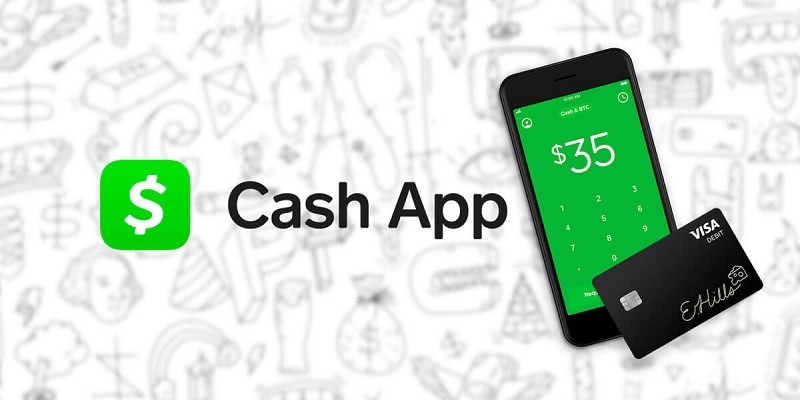
With technology improving everyday, tons of services are here to help make it easier to transfer money straight from your phone. We are slowly shifting away from hard cash by using credit and bitcoins. Cash is an online cash service that has grown in popularity with many opportunities.
Continue reading our Cash App Money Transfer Review to learn more about the many features, benefits and drawbacks to see if this service is for you.
What is Cash App?
Developed by Square Inc., Cash App is a money transfer service. Whether you need to pay your friend back or someone needs to pay you, Cash App acts like a bank account. They have a “Cash Card” that is similar to a debit card and allows them to pay for stuff using your Cash App balance. Not only that, but you can use Cash App to invest in stocks and buy bitcoin.
How to Send and Receive Money
Download the Cash App on your smartphone and the app will walk you through the enrollment process where you will create a user account and link at least one bank account. You will be able to use that bank account to send money to other Cash App users as well as to transfer money from your Cash App account into your bank account or you can also hold any of the received funds in the app until you’re ready to withdraw them.
To send payment:
- Open the Cash App mobile app.
- Enter the amount you want to send.
- Tap “Pay.”
- Enter the email address, phone number or “$Cashtag” (another person’s username in the app).
- Enter what you are sending the payment for.
- Tap “Pay.”
To view the details of a received payment, click “Activity” button. You’ll also see the money deposited into your Cash App account on the ‘My Cash” button.
Benefits of Cash App
- No fees on basic services. There is no monthly fee, fees to send or receive money, inactivity fees or foreign transaction fees.
- Comes with an optional free debit card. The “Cash Card” allows users to make transactions and withdraw the money that they have in their Cash App account. It isn’t connected to a personal bank account or another debit card.
- Free ATM withdrawals if you set up direct deposit. The fee is $2 to use an ATM with a Cash Card without.
- “Cash boosts” help you save money when using the debit card. The Cash Card can choose a specific “boost” on their account that allows them to save money on a purchase at a certain place.
- You receive a cash bonus for friends who join using your referral code. Tell your friends to sign up for Cash App using your link so that both of you can receive a cash bonus. You’ll receive $5 per friend who signs up, and they’ll receive $10 for signing up.
- The ability to invest. Cash App allows users to buy stock with as little or as much money as they want. Stocks can be purchased with the funds in your Cash App account.
- Bitcoin compatible (but with fees). Cash App users can buy and sell bitcoin, but Cash App will charge a service fee for each transaction and an additional fee depending on fees in U.S. exchanges.
Things to Consider About Cash App
- There is a fee to use a credit card. Cash App charges 3% of the transaction to send money via linked credit card. To avoid this fee, send money via your linked bank account or the funds in your Cash App account.
- There are spending limits on the Cash Card. The maximum that can be spent on your Cash Card is $1,000 per day/week and $1,250 per month.
- There are withdrawal limits on the Cash Card. The maximum amount that can be withdrawn at an ATM or store is $250 per transaction, $250 per day, $1,000 per week and $1,250 per month.
- Your funds aren’t FDIC-insured. Because funds in Cash App are never transferred or held with Sutton Bank, they don’t receive FDIC insurance.
 |
 |
Bottom Line
If you were looking to transfer money with ease, Cash App is one of the best services at it. Here is our full review on Cash App Money Transfer! If this is not the one for you, see other money transfer services you can take advantage of! You can compare Cash App with other popular services like Venmo and Mezu!



